The Friday Edition
Our Friday News Analysis | What the World Reads Now!
Helping to Heal a Broken Humanity (Part 31)
The Hague, 11 April 2025 | If you know of a decisive story, tell the world! We're still searching.
.jpg)
EDITORIAL | Let’s Make a Deal
The U.S. is in trouble. Instead of assigning blame, let’s focus on solving problems. Can we be honest? Must we be inflammatory, accusatory, and judgmental? Why do countries impose tariffs on their citizens? Pointing fingers at China overlooks a remarkable success story!
In the 1970s, most people in Peking (now Beijing) rode bicycles to work, with few cars on the road. Trains were slow, with their windows covered, prohibiting foreigners from observing countryside peasants. Today, China ranks as a global power for all to see, boasting more Rolls-Royces and Volvos in Beijing than any European city. Noted for its automotive safety leadership, Volvo Cars was owned by Ford Motor Company from 1999 to 2010 and then acquired by Geely Automobile, a major Chinese automotive brand. Traveling by rail is a breeze, with high-speed intercity trains exceeding expectations in Europe and North America. The Chinese work hard and smart.
Consider both shipping containers: one draped with the American flag and the other with the Chinese flag. Which would you choose? If you choose the one on the right from China, it’s full of affordable goodies that fill the shelves at Walmart and Amazon. In contrast, the U.S. container on the left is relatively empty, lacking competitively priced and quality products. Have you ever considered expressing gratitude to the Chinese for manufacturing Apple computers and iPhones with their blood, sweat, and tears at a fraction of the cost compared to U.S. or European production?
Why do countries impose tariffs on imported goods? Not long ago, a Mercedes Benz in Japan or Indonesia was priced 200 percent more than in the United States. Japan and Indonesia assessed a 200 percent tariff on the purchase of luxury cars because they wanted to keep their yen and rupiahs in their countries. It’s time for the United States to keep its dollars inside the United States.
It appears that the Trump administration plans to devalue the US dollar to enhance the competitiveness of American products in the global market. However, this will lead to an increase in import prices. This strategy also aims to facilitate a smoother transition—a softer landing—when the anticipated recession hits, which is expected to be triggered by the national debt. The US national debt will decrease in value alongside a weakened US dollar.
The strategy has merit, though it might hurt financially. Everyone must become self-reliant. Countries like China will reduce their product sales to Americans, while all nations will broaden their markets. With 300 million Americans versus 7.7 billion people globally, there's no need to be concerned about the rest of the world—they’ll find ways to profit by expanding their markets. The U.S. should do the same.
Don’t panic. Work toward a smooth landing with win-win solutions! The U.S. is in trouble. It’s bad, but not that bad. We’re living in a smaller, more interconnected world. That’s good unless we burn our bridges.
Let’s make a deal.
Please scroll below to read ‘What If Trump’s Tariffs Make Sense.’
TRUMP HIKES CHINA TARIFF TO 125%
The decision comes shortly after Beijing retaliated against Washington’s previous tariff rise.

Edited by Abraham A. van Kempen
10 April 2025
President Trump raised tariffs on Chinese goods to 125% in response to Beijing's retaliatory measures.
On Truth Social, the US president announced a 90-day pause and a 10% lowered Reciprocal Tariff effective immediately for many nations, notably excluding China and a few others facing recent US tariffs.
He hopes Beijing realizes that “ripping off the U.S. and others isn't sustainable.”
The move followed China’s Finance Ministry's announcement of a tariff hike. The country raised tariffs on American imports to 84%, matching Washington’s earlier 50% increase.
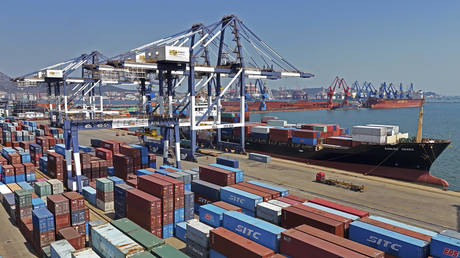
READ MORE: China imposes extra 84% tariff on US goods
The trade war between the world’s top economies began when Trump imposed a 20% tariff on Chinese goods in March. Last week, he increased it by 34%, prompting a reciprocal response from Beijing.
On Truth Social, the US president announced a 90-day pause and a 10% lowered Reciprocal Tariff effective immediately for many nations facing recent US tariffs.
Trump cited calls made by “more than 75 countries” to the Departments of Commerce, Treasury, and the U.S. Trade Representative. These nations were willing to discuss trade barriers, currency manipulation, and non-monetary tariffs.
Trump noted that, in contrast to China, “these countries have refrained from retaliation against the United States.”
What is the Side of the Story that is Not Yet Decisive? Edited by Abraham A. van Kempen
TARIFFS AND THE COMING ECONOMIC COLLAPSE
A lively conversation with Prof. Glenn Diesen and Mr. Peter Schiff, Chief Executive Officer of Euro Pacific Asset Management.

Watch the Video Here (29 Minutes, 29 Seconds)
Host: Prof. Glenn Diesen
Substack.com
7 April 2025
I spoke with Mr. Peter Schiff about President Trump’s tariffs on the world and the likely consequences.
Mr. Schiff is a financial commentator and Chief Executive Officer (CEO) of Euro Pacific Asset Management, an author, and former economic advisor to presidential candidate Ron Paul.
What will be the consequences of the tariffs?
Schiff argues that US industries are not prepared to replace the imports, which will cause significant disruptions to trade and increase inflation.
Will the U.S. economy crash? Will the dollar be destroyed?
THE END OF AMERICAN-LED GLOBALIZATION
Prof. Jeffrey Sachs and Prof. Glenn Diesen

Watch the Video Here (21 Minutes, 39 Seconds)
Host Prof. Glenn Diesen
Substack.com
8 April 2025
Prof. Jeffrey Sachs discusses the tariffs and economic coercion that diminish trust and restructure the international economy.
What changes will occur in trade, how will the US dollar be affected, and how will the world adapt to a global economy that no longer centers around the US?
HOW HUBRIS PROVOKED THE UKRAINE WAR
Prof. Jonathan Haslam with Prof. Glenn Diesen

Watch the Video Here (52 Minutes, 10 Seconds)
Host Prof. Glenn Diesen
Substack.com
8 April 2025
Jonathan Haslam is George F. Kennan’s Professor in the School of Historical Studies at the Institute for Advanced Study in Princeton and Professor of the History of International Relations at the University of Cambridge. He has a special interest in the former Soviet Union. His book ‘Hubris: The American Origins of Russia's War against Ukraine (28 January 2025),’ is available wherever books are sold.
Professor Haslam explains that the West’s overwhelming arrogance after the Cold War resulted in the Soviet Union’s exclusion from the European security framework and disregarding its legitimate security concerns.
Both advocates and opponents of NATO expansion recognized its potential to provoke a conflict with Russia. However, the prevailing sentiment in the Clinton administration was that Russia's viewpoint was inconsequential.
A leading expert on US-Russian relations, Prof. Haslam, reveals how the United States and its European allies set the course for the war in Ukraine―and offers a sobering indictment of American foreign policy since the fall of the Soviet Union.
The global reaction to Russia’s full-scale invasion of Ukraine in February 2022 should not have been one of shock. This assault intensified a conflict that started in 2014 with Russia's annexation of Crimea. Still, its roots can be traced even further to the post-Cold War era, when Ukraine became a focal point in the fraught dialogue between Russia and the West. The United States played a crucial role in this scenario. Jonathan Haslam contends that years of US foreign policy blunders and miscalculations, often exacerbated by European allies, set the stage for the current conflict.
Isolated, impoverished, and viewed as a secondary power globally, Russia increasingly resented Western triumphalism following the Cold War. The United States heightened Russian discontent by pursuing NATO expansion into Eastern Europe―particularly Ukraine, the most geopolitically significant among the former Soviet republics. Intent on maintaining its global dominance, the U.S. often overlooked warnings that provoking Russia would have repercussions. Meanwhile, believing that Ukraine was slipping into Western influence, Putin readied himself to alter the European balance of power in favor of Russia.
Prompt and sharp, Hubris uncovers the beliefs, ambiguities, and resentments that have shaped the West’s relationship with Russia since the end of the Soviet Union―making conflict inevitable.
After hubris comes nemesis.
Hubris (/ˈhjuːbrɪs/; from Ancient Greek ὕβρις (húbris) 'pride, insolence, outrage'), or less frequently hybris (/ˈhaɪbrɪs/), describes a personality quality of extreme or excessive pride or dangerous overconfidence and complacency, often in combination with (or synonymous with) arrogance.
The word nemesis describes a rival who can get the best of you. It can be someone you compete against, someone whose skills are nearly identical to yours, and yet, your nemesis always seems to finish ahead of you, get a higher grade, and generally make you feel flustered.
UKRAINE PEACE TALKS FAILING
Prof. Glenn Diesen on Legitimate Targets with Jackson Hinkle
???????????????????? BREAKING: RUSSIA PEACE TALKS FAILING, TRUMP ISSUES NEW SANCTIONS
— Legitimate Targets (@LegitTargets) April 6, 2025
On today's episode of Legitimate Targets, Jackson Hinkle speaks with PROFESSOR GLENN DIESEN (@Glenn_Diesen) about UKRAINE’S CEASEFIRE VIOLATIONS and Trump’s new RUSSIA SANCTIONS & THREATS. pic.twitter.com/511pwVswZs
Watch the Video Here (30 Minutes, 17 Seconds)
Host Prof. Glenn Diesen
Substack.com
7 April 2025
I had the opportunity to discuss with Jackson Hinkle the reasons behind the stagnation of US-Russia peace negotiations.
The US advocates for a swift ceasefire, criticizing Russia for being slow to act.
Conversely, Russia fears that the US aims to enforce a new Minsk-style agreement where fighting ceases, but the root causes of the conflict remain unaddressed. Additionally, the threat from European nations to deploy troops into Ukraine during a ceasefire effectively undermines the negotiations, making it difficult for Russia to agree to halt hostilities.
A significant Russian offensive is anticipated in the upcoming weeks.
THE WAR IS EFFECTIVELY OVER, AND RUSSIA MAY SEIZE ODESSA
Andrei Martyanov with Prof. Glenn Diesen

Watch the Video Here (49 Minutes, 15 Seconds)
Host Prof. Glenn Diesen
Substack.com
9 April 2025
I spoke with military expert and author Andrei Martyanov regarding the latest developments on the battlefield in Ukraine.
Andrei Martyanov specializes in Russian military and naval matters. He was born in 1963 in Baku, Azerbaijan's capital and largest city, then part of the former Soviet Union. After graduating from the Kirov Naval Red Banner Academy, he served as an officer on various ships and in staff roles within the Soviet Coast Guard until 1990. In the mid-1990s, he relocated to the United States and became the Laboratory Director for a commercial aerospace group.
Martyanov claims that Russia has triumphed in the war of attrition, leading to increasingly dire circumstances for both Ukraine and NATO. He examines the shifts in technology and tactics that have occurred over the last three years. With a bleak outlook, Martyanov doubts any chance for a diplomatic resolution and feels that Ukraine and NATO are on the path to military defeat.
Russia might, therefore, annex additional territories, such as Odessa. As the frontlines keep crumbling, casualty levels are increasing.
Addressing humanitarian needs, ensuring post-war stability, and securing a political settlement must be a priority.
DIPLOMACY AT AN IMPASSE: TRUMP ESCALATES ACTIONS AGAINST RUSSIA AND IRAN
U.S. Amb. Chas Freeman and Glenn Diesen

Watch the Video Here (46 Minutes, 07 Seconds)
Host Prof. Glenn Diesen
Substack.com
6 April 2025
Ambassador Freeman is a retired career diplomat who served as the Assistant Secretary of Defense for International Security Affairs from 1993 to 1994. During this time, he received top public service honors from the Department of Defense for his contributions to creating a NATO-focused European security framework after the Cold War and revitalizing defense and military ties with China. Additionally, he served as the U.S. Ambassador to Saudi Arabia during Operations Desert Shield and Desert Storm.
Trump often employs bold statements to challenge the norm and create opportunities for movement, then applies intense pressure before finalizing a deal.
In contrast to real estate, politics can breed unpredictability and mistrust.
Crucially, Russia sees itself confronting an existential threat from NATO, while Iran feels unable to compromise on its deterrent due to ongoing threats from the US and Israel.
What actions will Trump take if his negotiation strategies collapse? We are currently observing escalations involving Russia and Iran.
IRAN DEFIES TRUMP'S ULTIMATUM AND THREAT OF WAR
Seyed Mohammad Marandi with Glenn Diesen

Watch the Video Here (32 Minutes, 03 Seconds)
Host Prof. Glenn Diesen
Substack.com
4 April 2025
I had the privilege of conversing with Seyed Mohammad Marandi, a professor, analyst, and advisor to Iran's nuclear negotiation team.
Prof. Marandi shared insights on Iran's dismissal of Trump's ultimatum and the potential for nuclear escalation.
Prof. Marandi discusses the US ultimatum: accept its proposal or face military action.
He contends that the US cannot be trusted to honor any agreements, especially after its withdrawal from the JCPOA nuclear deal, and views the US demands as excessively unreasonable.
Marandi believes the US is ill-equipped to wage a successful war against Iran and emphasizes the necessity of rejecting Trump’s ultimatum. However, he acknowledges that this stance could result in a catastrophic conflict.
CHINA'S WINNING STRATEGY
Cyrus Janssen with Glenn Diesen – We still have the chance to view China as a partner instead of an adversary.

Watch the Video Here (35 Minutes, 36 Seconds)
Host Prof. Glenn Diesen
Substack.com
31 March 2025
I spoke with Cyrus Janssen regarding the misunderstandings surrounding China and its economic growth, the reasons behind its status as a leading innovative nation, and the probable ineffectiveness of the anti-China sanctions.
Cyrus Janssen is a geopolitical analyst, investor, speaker, and social media influencer with over 1 million fans across his social media platforms.
We still have the chance to view China as a partner instead of an adversary.
MAX BLUMENTHAL: BANNING PROTESTS AGAINST ISRAEL
It’s all about money.

Watch the Video Here (19 Minutes, 33 Seconds)
Host Prof. Glenn Diesen
Substack.com
9 April 2025
Max Blumenthal, the editor-in-chief of The Grayzone, is an acclaimed journalist and the author of multiple books, including bestsellers Republican Gomorrah, Goliath, The Fifty One Day War, and The Management of Savagery.
He has created print articles for various publications, video reports, and documentaries, including Killing Gaza.
JIM ROGERS: WE ARE HEADING INTO THE "WORST RECESSION OF MY LIFETIME"
Prof. Glenn Diesen’s interview with Jim Rogers – A market correction is long overdue.

Watch the Video Here (21 Minutes, 13 Seconds)
Host Prof. Glenn Diesen
Substack.com
1 April 2025
Jim Rogers has been a legendary investor for over 50 years, and experts worldwide seek his advice.
Rogers believes we are entering the most severe recession of his life. A market correction is long overdue, and the US economy's fundamentals are faltering, so the looming crisis seems unmanageable.
- The unsustainable debt situation cannot be fixed.
- A dollar crisis is imminent.
- Trump’s tariffs create uncertainty and are expected to have serious long-term repercussions.
Jim Rogers is a Singapore-based American investor and financial commentator. He chairs Beeland Interests, co-founded the Quantum Fund with George Soros, and established the Rogers International Commodities Index (RICI).
ALEX KRAINER: DECLINING EUROPE VS RISING BRICS
BRICS presents a viable alternative to American-led globalization.

Watch the Video Here (48 Minutes, 36 Seconds)
Host Prof. Glenn Diesen
Substack.com
9 April 2025
Alex Krainer examines the significant changes in the global economy and their potential political ramifications. Europe is forfeiting its once-privileged standing in the international arena, becoming a focal point of security issues while facing growing opposition from the US, China, and Russia.
Meanwhile, in the East, BRICS presents a viable alternative to American-led globalization.
GUEST EDITORIAL | WHAT IF TRUMP’S TARIFFS MAKE SENSE?
They’re messy, risky, and unpopular – but they might be part of a bigger, more brilliant plan.
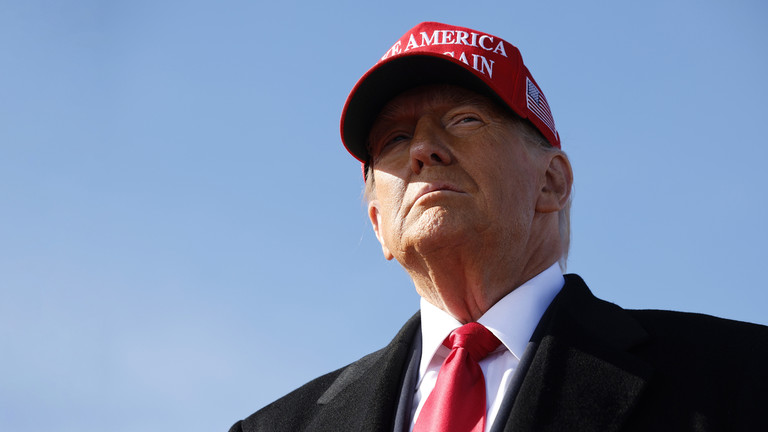
FILE PHOTO: US President Donald Trump. © Chip Somodevilla / Getty Images
By Igor Makarov, Associate Professor at the Higher School of Economics (HSE), head of the Research and Educational Laboratory for the Economics of Climate Change, and the editor-in-chief of HSE’s Contemporary World Economy
Annotated by Abraham A. van Kempen
HomeBusiness News
9 April 2025
Let me take a devil’s advocate stance. While I won't defend President Trump’s tariffs, I want to challenge how discussions often dismiss them with a condescending, “that’s just foolish,” ignoring the broader economic context both at home and abroad.
Trump often speaks impulsively, lies, and makes basic speech errors. Yet, beneath the bravado is a coherent strategy crafted by skilled individuals. Even if you disagree, it's worth trying to understand its essence.
I don’t claim to have all the answers (frankly, I’m suspicious of anyone who says they truly understand what’s going on inside Trump’s head), but here’s how I see it.
Key Insights on Global Imbalances
Global trade imbalances stem from mismatches between national savings and investment. In countries like China, Germany, Japan, and major oil exporters, savings exceed domestic investment, leading to foreign capital and trade surpluses.
In the US, Americans save less than they invest, leading to a trade deficit filled by foreign capital.
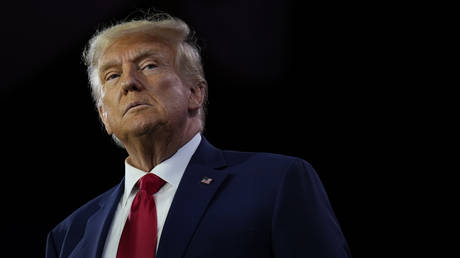
Read more
Trump’s tariff war breaks the rules – and dares the world to stop him.
What Led Us To This Point?
For decades, export-driven economies like China, Germany, and Japan have shifted income from households, which spend more, to corporations and the government, which save. This boosts the national savings rate, but excess capital flows abroad as not all savings can be invested domestically.
About a trillion dollars yearly end up in the US for two main reasons:
The American economy encourages spending, not saving.
Investors and governments seek the dollar in uncertain times – it remains the world’s safe haven.
Why is That a Problem for the U.S.?
The US economy seems strong in the short term, with no alarm bells ringing. However, underlying imbalances are rising: persistent trade deficits, increasing federal debt, and higher interest rates. As borrowing costs rise, servicing that debt becomes increasingly complex.
China is slowing its push to boost domestic consumption, while Europe’s woes drive more capital into the US, deepening the imbalance.
Trump’s political clock is ticking; he must act now as the midterms approach.
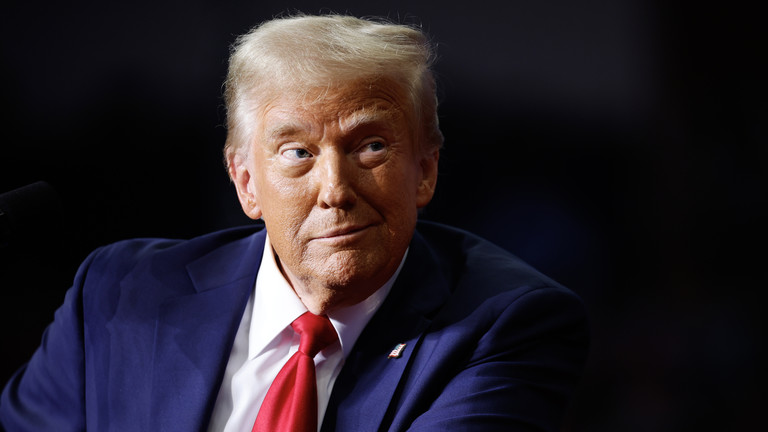
Read more
Here’s what’s behind Trump’s tariffs – and how they may backfire.
What Are His Options?
How can the US increase savings, reduce the trade deficit, and lower long-term interest rates? There are several options:
- Reduce government spending – Trump advocates this (see DOGE’s efforts).
- Cut corporate taxes and invest in industry – the first raises inequality, and the second is tough in a polarized political system. Both are being pursued, partly through tariffs.
- Restricting capital inflows is politically sensitive.
- Limit the dollar’s global reserve status – unilateral action is challenging and may destabilize.
- Imposing tariffs is the simplest choice for Trump.
Tariffs might be the starting point. The bigger plan combines elements from all five approaches.
Genuine Critiques
However, the criticisms are sincere and often justified.
Why is Trump using a flawed chart of tariffs to justify his actions? As Olivier Blanchard quipped, we all have trade deficits with our baker and surpluses with our employer. This also applies internationally. Trying to ‘balance’ every bilateral trade relationship is naive and misses the point.
Trump isn’t balancing trade; he’s negotiating. The US market is vital to many countries, and he seems to leverage access for concessions. If tariffs are raised, why not extract additional benefits?
Some warn this may cause a global crisis, citing the Smoot-Hawley Tariff Act of 1930, often blamed for worsening the Great Depression. However, it’s important not to oversimplify; the US then had a trade surplus, consumption shortfall, and overinvestment – tariffs exacerbated issues. Today, the US faces the opposite problem.
We can't rule out disaster depending on how the trade war unfolds. I suspect many tariffs will be rolled back through negotiations. Even if not, surplus countries like China, Germany, Japan, South Korea, and Russia will bear the initial pain, while the US will feel the impact last.
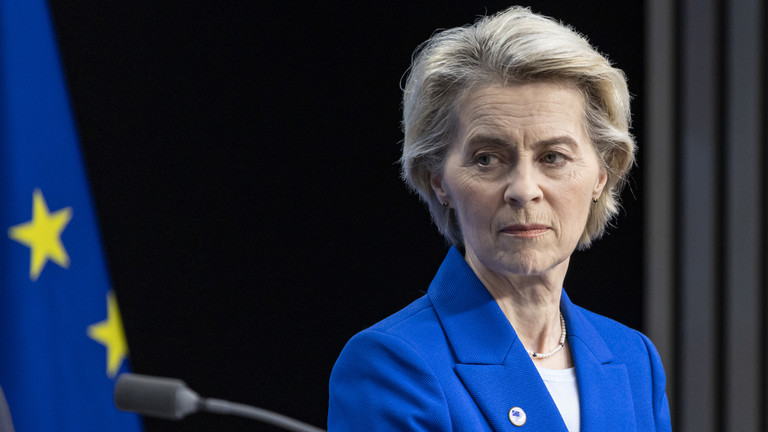
Read more
The art of the (no) deal: Can the EU stand up to Trump’s tariffs?
The US could emerge stronger after triggering a global crisis.
Inflation is No Joke
The immediate risk is inflation, possibly stagflation. Trump claims domestic production will rise to meet demand and control prices, but I’m skeptical. Production takes time; price increases do not.
There’s still too much unknown:
- To what extent do US firms rely on overseas components?
- How much will imports drive future inflation?
- Will other parts of the plan happen?
- How will global deflationary forces, with countries dumping excess goods into non-US markets, interact with rising domestic prices?
The Bottom Line
Trump is gambling – big time. Tariffs are a blunt, inefficient tool. Economists know this. That’s why so many of them are freaking out.
This issue goes beyond tariffs; it concerns reforming the economic model the US and the world have followed for 30 to 80 years.
It’s bold. It’s dangerous. I don’t think it’s justified. But it’s not insane.
THE WISE MEN OF INTERNATIONAL TRADE
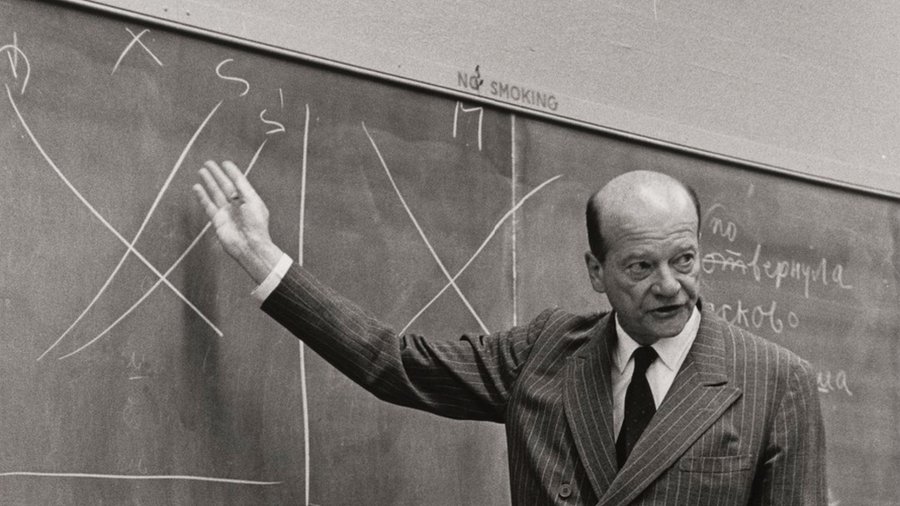
By Jeffrey A. Tucker
Epoch Times
9 April 2025
Annotated by Abraham A. van Kempen
The phone rang, as it did in those days.
“This is Gottfried Haberler.”
I was stunned, even amazed.
“Can you come to tea on Wednesday?”
I agreed, but I couldn't believe it was happening. As a young publisher, I had just published an old book he wrote on business cycles, and he was grateful. Meeting him was another matter.
Professor Haberler was a key figure in international trade. Immigrating from Vienna to Harvard in 1936, he promptly submitted a book he had been working on, titled “International Trade.”
The book succeeded previous great treatises, addressing the dire interwar period. A decade of hyperinflation devastated Germany’s economy, while the U.S. faced depression and experimented with centralized control. Fascism and Nazism surged in Europe.
The monetary system has faced upheaval since FDR shut the banks, collected gold, and devalued the dollar. The key question is what system will replace the current chaos.
By 1936, unresolved Great War issues fueled conflicts that could spark another world war. Haberler recognized this and focused his book on the ideal trade and monetary system to ensure lasting peace and prosperity post-war.
More on the book soon, but let’s return to tea.
I entered the room, and there he was, along with others. I was very young, surrounded by elderly men. As they introduced themselves, I realized this room was filled with those who shaped the Bretton Woods Agreement of 1944 and held significant roles at the Bank for International Settlements and the International Monetary Fund.
For most of the following two hours, I sat and listened in awe.
Today, these gentlemen face poor treatment in pop history as the “neo-liberal” architects of the post-war trading and monetary system. While this is accurate, the assumption they had harmful intentions is misguided. They aimed to create a free and fair system to foster economic interdependence among nations, preventing violent conflicts and promoting postwar prosperity for all.
Haberler’s 1936 book offers a key template, more than anything by Keynes. A third of it addresses the urgent issue of trade account settlement in the U.S.
The key question was creating a system that balanced each nation's industrial and resource status, preventing countries from securing lasting wage and price advantages.
Haberler referenced historical free-trade literature, which assumed cooperative countries used hard currencies like gold and silver. This was held in the 18th and 19th centuries, resolving settlement issues. Exporting countries experienced money inflows that raised prices, wages, and production costs, benefiting others through increased purchasing power and lower production costs.
Thus, a long-term trend toward international equilibrium existed. However, in 1936, the era of devaluation and paper money began, creating serious issues. If a nation permanently undervalued its currency without correction, it could deplete another's manufacturing industry. The accounts could not clear as before. Haberler examined this issue extensively.
Post-war, a policy was established: the Bretton Woods system, a dollar-exchange standard. Gold was no longer convertible domestically but would move internationally for account settlement. Countries with gold inflows faced rising production costs, while those with outflows adjusted prices downward to regain competitiveness.
The system appeared promising. They tried hard. It resulted from top minds collaborating over the years, engaging stakeholders, and genuinely pursuing stability, peace, and prosperity.
Not everyone believed it would work. Economist Henry Hazlitt, working for the New York Times, wrote editorials claiming it couldn't last because the new system lacked a way to restrain national fiscal policy. While Haberler didn't entirely disagree, he was more pragmatic, seeing it as the best deal possible given the political realities.
Was Hazlitt correct? Eventually, twenty years later, after JFK's assassination, the U.S. launched a spending spree to support Lyndon Johnson’s political standing, primarily by creating debt. Other nations quickly responded by demanding gold for debt repayment.
By 1968, gold flows outward were too significant to ignore. Three years later, Richard Nixon, despite his disagreement, felt compelled to act. He closed the gold window, defaulting on debts, marking the official end of Bretton Woods, crafted by those in this room.
By 1973, a new system fully embraced paper currency and established a trading market for currencies, similar to a stock market. Settlement would occur as outward money flows lowered prices and inward flows raised them, comparable to a gold system.
Fewer true believers existed in the new system. A deep flaw persisted: the U.S. dollar would be printed indefinitely, entirely paper and free from gold backing. International demand for dollar paper means repatriation is impossible, and price adjustments are unlikely.
The new system faces three significant issues: 1) it may cause inflation and harm the savings of the middle class, 2) central banks could manipulate interest rates, leading to business fluctuations, and 3) it might result in the gradual deindustrialization of the United States for complex reasons.
We’ve endured 50 years of tragedy under the 1973 system, worse than its predecessor. It was hastily assembled, a poor approach to reform.
These architects of the old system were brilliant men who considered all angles, did their homework, had good intentions, and worked within political limits. Their system might have succeeded without other intervening factors.
This generation focused on creating a stable world order for all. They were imperfect but tried their best.
Discussion arises about a new monetary agreement imposed by the Trump administration following the economic turmoil caused by his tariffs, which reversed 80 years of policy. The structure remains speculative, but I have serious doubts.
The lessons learned from this long history are threefold. First, no one fully understands the whole. Second, the best-laid plans often go awry. Third, no group of intellectuals can anticipate the fallout from change, including second-order effects and their cascades.
The best approach to these issues is humility, diplomacy, and careful thought. I don't see these values in current affairs, so we should all be concerned.
This is not the place for a detailed critique, as matters are still unfolding. I sense something significant is coming. We hope it will be better than the decades of state aggrandizement, inflation, business cycles, and trade imbalances we've endured.
What would the wise men of 1944 say? They would counsel a better approach than panic and extreme action that risks dangerous outcomes. They suggest we consider all the options over tea over many months or even years.
Jeffrey A. Tucker is the founder of the Brownstone Institute and author of numerous articles and 10 books, including “Liberty or Lockdown.” He edits “The Best of Ludwig von Mises,” writes a daily economics column for The Epoch Times, and speaks on economics, technology, social philosophy, and culture. Contact him at tucker@brownstone.org.
BUILDING THE BRIDGE! | A WAY TO GET TO KNOW THE OTHER AND ONE ANOTHER
Making a Difference – The Means, Methods, and Mechanism for Many to Move Mountains
.jpg)
Photo Credit: Abraham A. van Kempen, our home away from home on the Dead Sea
By Abraham A. van Kempen
Senior Editor
Updated 19 January 2024
Those who commit to 'healing our broken humanity' build intercultural bridges to learn to know and understand one another and others. Readers who thumb through the Building the Bridge (BTB) pages are not mindless sheep following other mindless sheep. They THINK. They want to be at the forefront of making a difference. They're in search of the bigger picture to expand their horizons. They don't need BTB or anyone else to confirm their biases.
Making a Difference – The Means, Methods, and Mechanism for Many to Move Mountains
Accurate knowledge promotes understanding, dispels prejudice, and awakens the desire to learn more. Words have an extraordinary power to bring people together, divide them, forge bonds of friendship, or provoke hostility. Modern technology offers unprecedented possibilities for good, fostering harmony and reconciliation. Yet its misuse can do untold harm, leading to misunderstanding, prejudice, and conflict.
A Free Trial for Life – SUBSCRIBE NOW!

• It's quick and straightforward.
• We won’t ask for your credit card number.
• Just enter your e-mail address to receive your complimentary free-for-life subscription to our newsletter.
• Please include your First and Last Name.
• We won’t share or sell your e-mail address.
_________________________
Related Articles Recently Posted on www.buildingthebridgefoundation.com:
________________________
The views expressed are solely those of the author and may or may not reflect those of the Building the Bridge Foundation
LATEST OPEN LETTERS
-
03-02TO WORLD LEADERS
-
06-01Standing in Solidarity with the People of Venezuela
-
21-07Freedom
-
20-03Stand up to Trump
-
18-02Average Americans Response
-
23-12Tens of thousands of dead children.......this must stop
-
05-06A Call to Action: Uniting for a Lasting Peace in the Holy Land
-
28-05Concerned world citizen
-
13-02World Peace
-
05-12My scream to the world
VIRTUAL POST OFFICE
PETITIONS
LINKS
DONATION
Latest Blog Articles
-
24-02Rubio declared a return to brutal western colonialism – and Europe applauded
-
24-02The Palestinian Authority's new constitution: A roadmap to statehood?
-
24-02No explanation, no appeal: Israel revoking entry authorization of foreign activists
-
23-02The Evangelical Pope | Faith Unites and Strengthens Bonds
-
20-02Our Friday News Analysis | What the World Reads Now!
-
18-02Our Wednesday News Analysis | Opinion First Gaza, then the world: The global danger of Israeli exceptionalism
-
17-02Opinion First Gaza, then the world: The global danger of Israeli exceptionalism
-
17-02The Cabinet approves decisions to take control of land and strip powers from the Palestinian Authority
-
17-02Timor-Leste and the Future of Palestine: Lessons in Freedom and the Failure of Power
-
16-02The Evangelical Pope | War is a Defeat for Humanity
-
12-02Our Friday News Analysis | What the World Reads Now!
Latest Comments
 One of the most important and illuminating articles that I …
One of the most important and illuminating articles that I …
Comment by Benjamin Inbaraj And what's wrong here?
After all, there is the homeland …
And what's wrong here?
After all, there is the homeland …
Comment by Isac Boian Does this reinforce or deny my argument that Israel is …
Does this reinforce or deny my argument that Israel is …
Comment by Edward Campbell Many 'say' they support the Palestinian cause but do little …
Many 'say' they support the Palestinian cause but do little …
Comment by Philip McFedries The UN is strangled by the "war for profit" cabal …
The UN is strangled by the "war for profit" cabal …
Comment by Philip McFedries I can't read the printing on the map.
I can't read the printing on the map.
Comment by Philip McFedries Good news!
Good news!
Comment by Philip McFedries
.jpg)
COMMENTS
This article has 0 comments at this time. We invoke you to participate the discussion and leave your comment below. Share your opinion and let the world know.